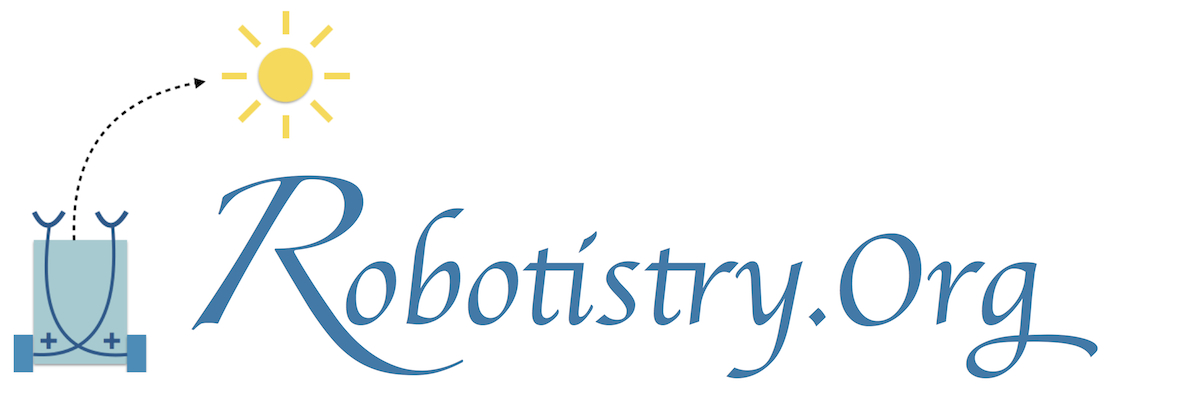
The purpose of this site is to provide a place for robotics researchers, educators and developers to discuss the foundations and limits of Robotics as a technical and academic discipline.
The site is called robotistry because robotics is an arbitrary choice - the study of robots could just as easily have used the nomenclature of biology ("robotology") or chemistry ("robotistry") or philosophy ("robotsophy"? "robotosophy"? maybe not...) instead of physics.
And the domain was available.
Robotics is in the early stages of evoloving from an interdisciplinary field of study into a discipline in its own right. In the last few years, I’ve noticed that regardless of what department they work within, researchers in this field tend to identify predominantly as working in robotics, rather than as part of their nominal primary discipline. People are beginning to be able to agree about the basic terminology used in the field (or at least being willing to disagree), and specific tools and techniques are beginning to have specific ways they are used in robotics that differ from how they are used in other technical disciplines. Roboticists are even beginning to be able to identify specific contributions that robotics has made that would not have come from other disciplines. Why now? I think we’re ready!
There are three main components of this site: the blog, the terminology section, and the topics section.
The blog posts are responses to the set of Blog Questions linked to from the main blog page. Different community members will be contributing answers to the questions they think are most interesting, most relevant, or simply something that they have an opinion about. The comments for the blog are where the majority of the discussion will be taking place.
The blog is set up to accept comments from both guests (which will be displayed in this color) and logged in community members (which will be displayed in the default black). Eventually, as the list of terms in the terminology section increases, the site will automatically scan your new comment for words defined in the terminology section and ask you to indicate which definition you’re using. If your definition is not listed, you will be prompted to select the text in your comment that refers to your definition. That text will be added to the discussion page for that term as a potential new definition and be put up for discussion. However, that functionality has not yet been implemented.
The terminology section is where we keep track of common terms used in the blog posts and comments. It is set up as a wiki, with the main terminology page updated by site admins on the basis of consensus on the associated disucssion page. Community members are able to read and edit the disucssion pages, contributing to the development of consensus definitions. People who are not community members and not logged into the site may only view the definitions page, not the discussion pages.
The topics pages cover the various supporting information that the community deems useful. These are also wiki pages that can only be edited by logged in community members, but are viewable by everyone.